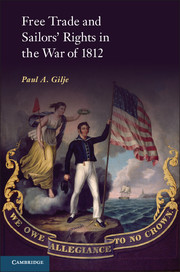1 - The Enlightenment and Defining Free Trade
Published online by Cambridge University Press: 05 March 2013
Summary
In the late eighteenth century, free trade emerged as a crucial concept in political economy and the relationship between nations. Notions of free trade had been discussed for centuries, but the emphasis on reason in the Enlightenment provided a rationale and a new context that enhanced and strengthened the appeal of free trade. The Enlightenment also encouraged a new vision for diplomacy whereby nations would deal equitably and peacefully with one another and free and open commerce might even lead to the elimination of war. The key to this new world order would be free trade. These words, however, as they were used in the years before the American Revolution, had at least five different definitions. First, commentators frequently applied “free trade” to describe the ability to trade freely in any market. Second, and more important to the pre-1776 context, other authors used the phrase to describe opening trade between nations or colonies beyond imperial or governmental restrictions. Third, free trade came to be seen as setting up a reciprocal agreement whereby foreign merchants paid only the customs duties charged to the nation's own merchants. Fourth, pushed to its most extreme form, free trade meant, just as it does today, the absence of trade barriers. Finally, in a not wholly unrelated context, free trade also became associated with neutral rights and the idea that “free vessels make free goods,” which meant that during a war no belligerent could interfere with the trade of a neutral power even if that trade was with an enemy nation. Although a modern observer can disentangle these different meanings of free trade, in the eighteenth century writers often used the term with less precision, intermingling, overlapping, and confusing the various definitions of free trade.
- Type
- Chapter
- Information
- Free Trade and Sailors' Rights in the War of 1812 , pp. 13 - 31Publisher: Cambridge University PressPrint publication year: 2013



